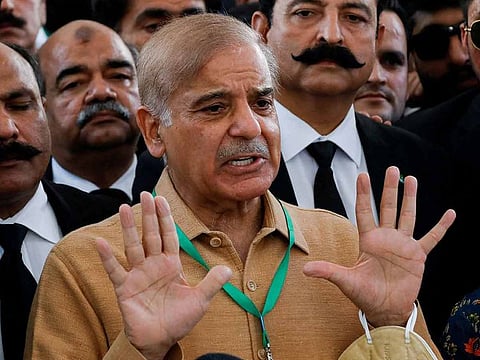Pakistan forms apex body to stem violence
Pakistan’s National Security Committee decides to revitalise counter-terrorism mechanism

Islamabad: Pakistan’s highest national security body agreed to revitalise the counterterrorism mechanism in the country to stem the new tide of militancy through proportionate measures.
The National Security Committee (NSC), a body of top civil and military leaders, has decided to form an apex committee at the central level, which would be headed by the prime minister, to deal with the growing incidents of unrest in Swat and other border regions of Khyber Pakhtunkhwa. Pakistan security forces have faced several attacks in recent weeks in the areas particularly bordering Afghanistan.
The newly-formed apex committee “will review the existing anti-terrorism system and identify measures to develop it on more efficient lines” according to the official statement. Pakistan’s top civilian and military leader also decided to revive National Counter Terrorism Authority (NACTA), as the central body to respond to the new counter-terrorism strategy, with the collaboration of the provincial counter-terrorism departments (CTD).
The NSC meeting approved effective measures to provide fool-proof security to the China-Pakistan Economic Corridor (CPEC) projects.
The NSC meeting on Friday was held under the chairmanship of Prime Minister Shehbaz Sharif and was attended by federal ministers, services chiefs, heads of intelligence agencies and other senior officials. The participants reviewed the overall law and order situation in the country and “vowed to ensure the security of people’s lives and property at every cost.” Pakistani leadership “made it clear that the blood of every Pakistan was very precious and the law would strictly deal with every person involved in shedding the blood,” the NSC statement said.
Swat attack
The NSC decision comes after thousands took to the streets this week in Swat Valley in northwest Khyber Pakhtunkhwa province after unidentified gunmen opened fire on a school van, killing the driver and injuring one student. The protesters demanded an end to violence and asked the government to ensure the safety of residents and take strong measures against all forms of terrorism in the region. Nobel laureate Malala Yousafzai, who recently visited Pakistan to express solidarity with flood victims, also backed the protests. “Monday’s attack on a school bus full of children is a frightening reminder that our people must not be forced back into lives of fear and terrorism,” she tweeted.
Locals residents have blamed the banned militant organisation Tehreek-e-Taliban (TTP) for the attack but the group has denied responsibility. Pakistan’s federal and provincial governments have expressed concerns about the reports of a return of militants to the Swat valley. Khyber Pakhtunkhwa government said that not all attacks could be linked to the banned TTP and that splinter militant groups could also be behind the recent attacks.
Pakistan’s Defence Minister Khawaja Asif ruled out the immediate possibility of a military operation in Swat saying “any intervention is not on the cards”. He said that the “recent revival of few terrorists is an expected spillover from Afghanistan.” The defence minister said that the PMLN-led government is considering peaceful means to resolve issues with Afghanistan. “We will use peaceful means to resolve the matter and we will use force if it’s inevitable to purge the country from the menace of terrorism.”
Sign up for the Daily Briefing
Get the latest news and updates straight to your inbox



